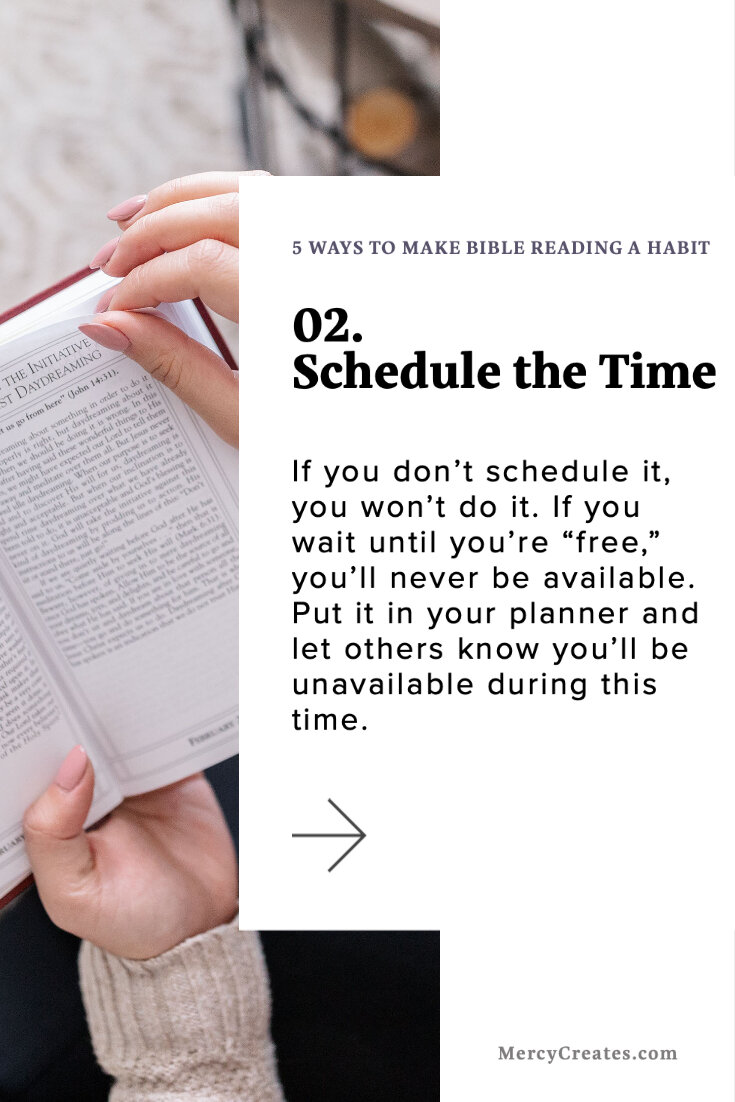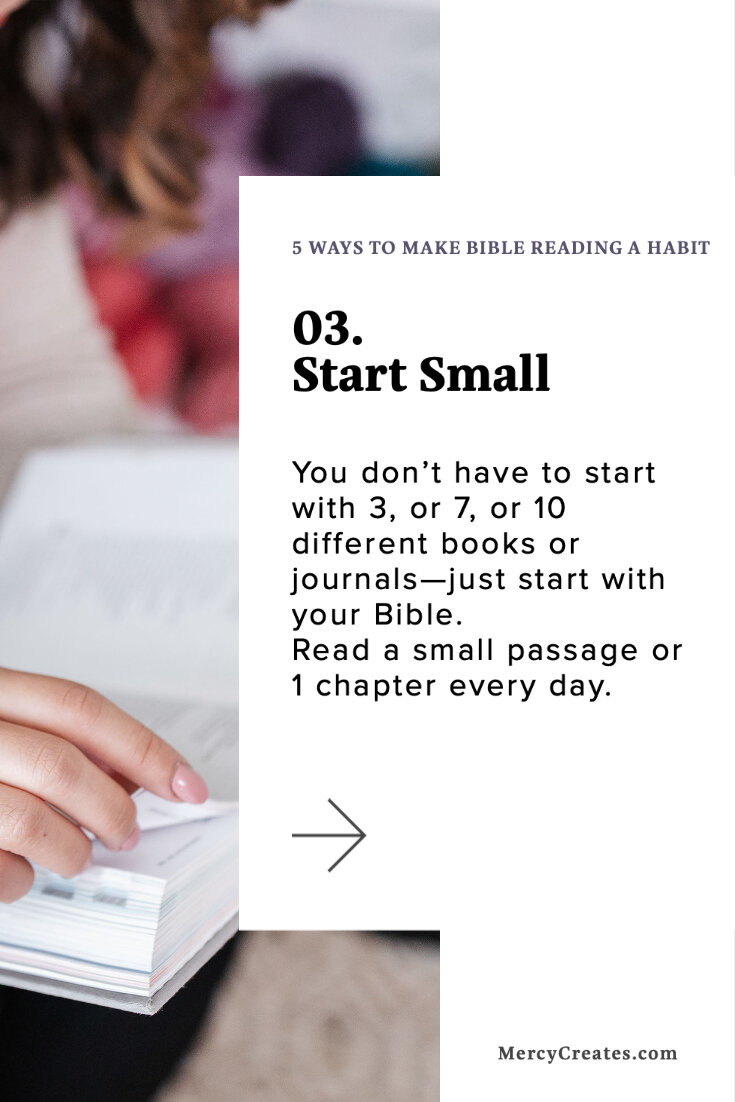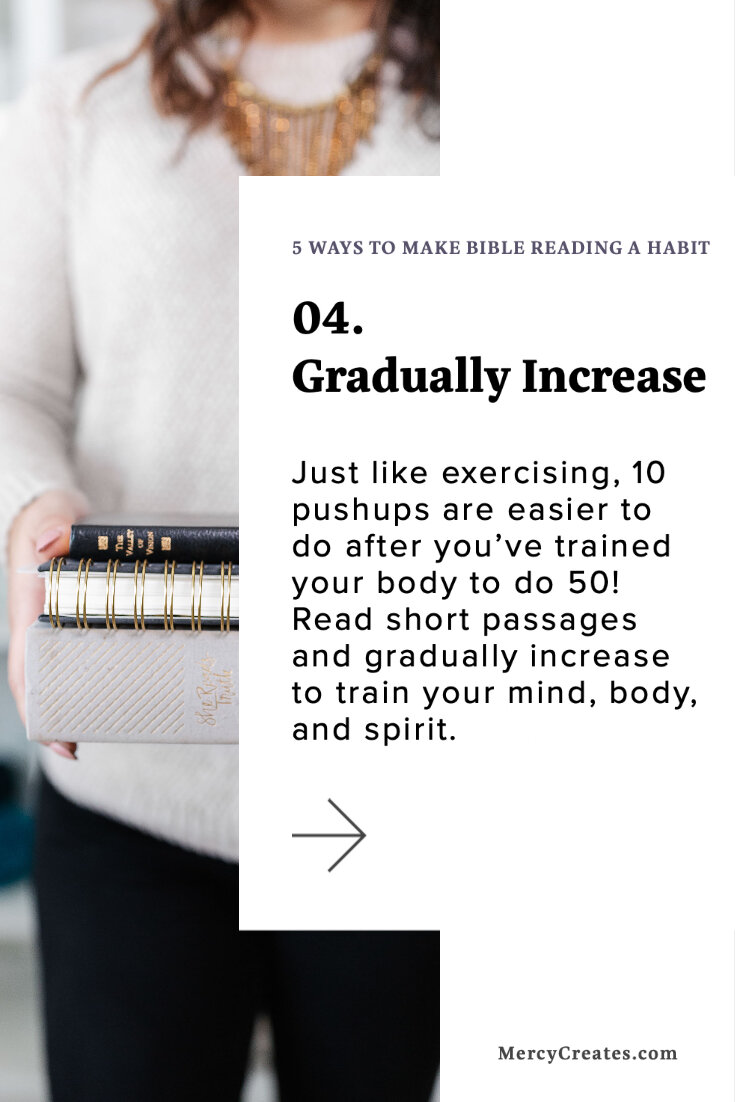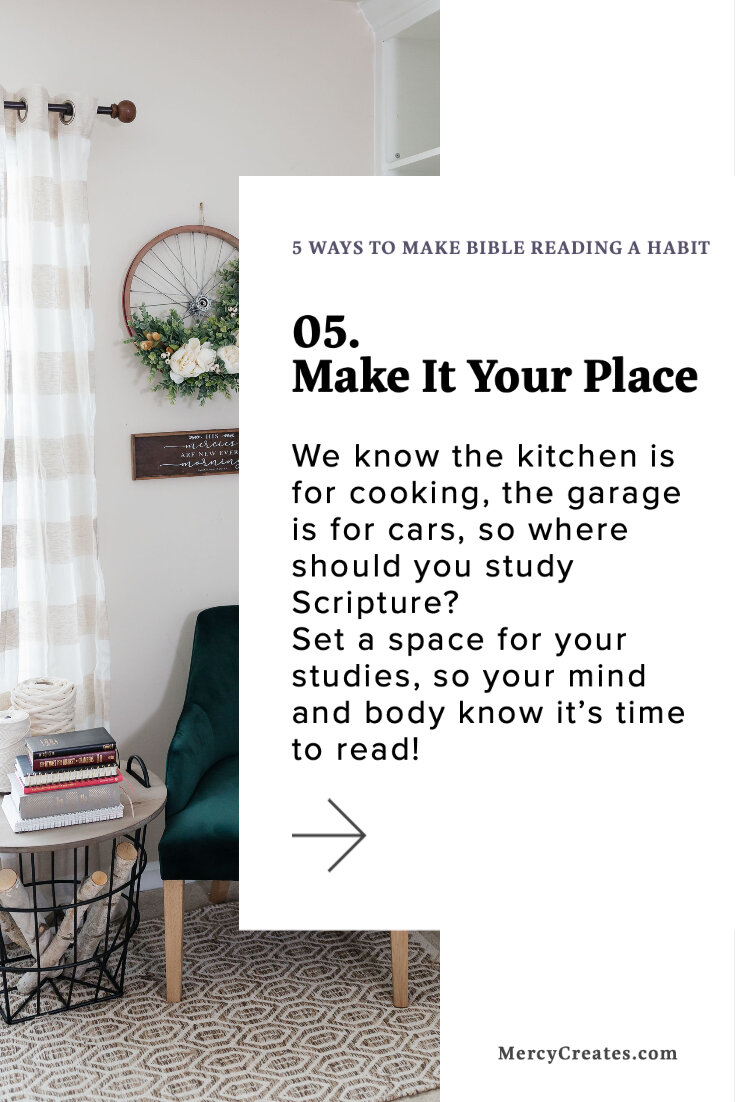Reading, studying, and wrestling with His word is a benefit and privilege in the relationship we have with Him. It’s a way for us to learn more about Him, grow in our relationship with Him, and understand how He wants us to live in this world.
It’s so much more than a “task,” yet I sometimes go weeks or months without opening my Bible. It’s definitely a weird space to live in: knowing I can living with more direction and peace, yet choosing to fill my time with something else.
Studying the Bible shouldn’t be intimidating—after all, it’s the greatest and most interesting letter our Father wrote to us (battles, romance, poetry, wisdom, history).
So why do we face SUCH paralysis when deciding where to start?
I believe it’s simple: the enemy doesn’t want us to read the Bible—the literal Sword of the Spirit.
Paralysis, intimidation, confusion—none of that comes from God. Satan wants us to stay stuck and to not learn about God, His plans, His love, His provision, His justice—because when we do...
-
We have peace,
-
We have community,
-
We have direction,
-
We have confidence,
-
We have stable footing,
-
We have purpose,
-
and so much more.
How good is God that He doesn’t make it a requirement to our salvation?
Everyone develops habits in different ways, so this isn’t the list or the way to make Bible reading a habit. However, these are the techniques I used to help me become disciplined in my studies:
Identify the Time.
Everyone works differently at different times of the day. I’m an afternoon person—I’m most alert and productive between 12:30–4 p.m., so I study and read anywhere between 2–4 p.m. I know some people want to start reading at the beginning of their day, and some people wait until the end. There’s no “correct” time to read, but it is important that you’re awake and ready to learn about God.
When do you feel most awake and alert: morning, afternoon, or evening?
Schedule the Time.
If you don’t schedule it, you won’t do it. If you wait until you’re free, you’ll never be free. I give myself a window of time, just in case something unexpected happens, but I make it a designated time to read between 2–4 p.m.
Also, if you’re married, get your spouse on board and let him or her know that you’ll need 15–45 unbothered minutes to yourself that day. Who can say “No” to you studying? Let them know ahead of time, too, not 5 minutes your quiet time—no one appreciates a “spontaneous” schedule change!
If not married, do you have a close friend that could be your accountability partner? Send them a text and say “Can you help remind me to read my Bible everyday?”
Start Small.
I have 5–6 books and journals that I use, and it took months for that growth! You don’t have to start with 3, or 7, or 10 different books or journals—just start with your Bible. If you want to add an element of disciplined prayer, add a blank notebook + your Bible. And when you do start reading the Bible, start with a relatively small New Testament book: you’ll lose momentum and excitement if you start with 26 chapters in Leviticus!
Gradually Increase.
Maybe you’ll start reading with a small passage or read 1 chapter everyday. Whichever way you choose to start, gradually increase the length each week. I started by reading 1 chapter from the New Testament and wrote 1 prayer in my notebook. I increased my studies by adding another book in the Old Testament, so my studies then became 1 chapter in the Old Testament, 1 chapter in the New Testament, and 1 written prayer in my journal. And then a few weeks or months later, I added 1 chapter in Proverbs to my rhythms.
Just like exercising, 10 pushups are easier to do after you’ve trained your body to do 50! Read short passages and gradually increase to train your mind, body, and spirit.
When you do start introducing more pieces to your studies, take “Brain breaks”! Stretch, take a small walk, do something active between books and journals, so you can stay alert.
I’m often snacking or drinking as I’m reading. I’ll also check my workload or emails, and if it’s something quick I can easily take care of, I’ll do it then—otherwise, the next 20 minutes will be spent focusing on that task or response instead of what I’m reading.
Studying and developing this relationship with God isn’t a rigid practice. It’s ok to take a break, so you can give your complete attention to Him.
Make It Your Place.
We know the kitchen is for cooking, and the garage is for cars So where should your studies in Scripture be? Because I’m at a desk all day, I’ll turn my chair to face away from my computer. It eliminates distractions and tells my mind and body I’m doing something new.
I know this can’t happen for everyone’s schedules and commitments, but if you can, just make a small physical shift from your “normal” environment to help your brain and body adjust.
Your schedule and season may not allow for some of these to happen, and that’s totally fine! Everyone goes through different seasons and schedules (“For everything there is a season, a time for every activity under heaven.” —Ecclesiastes 3:1, NLT). It is, however, important to remember that these seasons of busyness are temporary, and that God blesses every effort we make to know Him more.
It’ll be very easy to become distracted and discouraged because the enemy doesn’t want us to read the Bible.
Maybe you’ll miss one day. Maybe you’ll only read 1 chapter.
That’s ok.
Continue to be faithful and just like exercising, these small changes will eventually turn into a habit. It’s not easy, but I think we can all agree it’s necessary for our spiritual growth and relationships!






Leave a Comment +